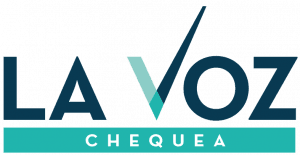
VERIFICATION METHOD
The Voice Verifies fact checks statements made by representatives, mayors, deputy mayors or any other public official, or those that are expressed in documents read during city council sessions.
These are the steps we follow to verify statements:
1- Choosing a public statement: We chose statements made by mayors, deputy mayors, representatives or public documents from city council that can be checked against data or facts.
2- Weighing its relevance: We consider the importance of each statement we check and we ask ourselves if it has an impact on the development of communities, cantons or public debate.
3- Consulting the original source: We ask the person who made the selected statement where they got the data they refer to and what context they meant to use it in. We ask what their source is for the basis of their statement and we clear up aspects that could be left open to interpretation, like the use of adjectives.
4- Consulting the official source: We corroborate the facts or data with information from the state entity in charge of analyzing the phenomena and responsible for producing data on the corresponding issue.
5- Consulting alternative sources: We turn to information that isn’t contained in state institutions, but is elaborated elsewhere. For example, non-governmental organizations, private universities and news outlets.
6- Placing it in Context: All statements will be put into context in order to understand what they mean. We consider socio-economic, historical and local cultural factors as well as regional, national and international contexts.
7- Qualifying: We qualify the selected statement in three different ways: true, debatable or false.
We believe that the selected statements are relevant for the public agenda based on the person who made it, the topic or their repercussions in communities. The editorial team at The Voice of Guanacaste analyzes weekly the relevance of available material
We don’t check opinions, comments, beliefs or projects, except for when we can verify their truthfulness with data or facts. The Voice Verifies doesn’t give opinions.
We don’t check statements when there are no data, documents or experts that can verify them.
We don’t use anonymous sources. We always cite the source and, when possible, include a link to the document and the original data so that they are accessible. Editor’s note: The methodology used by The Voice Verifies is inspired by several fact checking and public discourse outlets in Latin America, among them Argentina-based Chequeado.
QUALIFICATION SYSTEM
The Voice Verifies will qualify statements as follows:
True: We checked the information against official sources and data and were able to prove the statement is true.
Debatable: The datum or the statement seems true, but is out of context or lacks support.
False: We checked the information against official sources and data and were able to prove the statement is false.
When more than one category applies to a statement we decide how to qualify it according to the aspect that we want to emphasize.
Certain statements or issues that we consider relevant but aren’t qualified using the above system are analyzed in The Voice Explains section where we create content to improve understanding of public happenings and deepen debate.
CORRECTIONS PROTOCOL
We want to improve the quality of debate inside city halls and councils and provide readers with accurate information as they make decisions to develop their communities. We believe in collectively producing knowledge and we are open to receiving feedback from communities about potential mistakes in our verifications. .
At The Voice Verifies, we seek out the highest level of rigor and accuracy, but we can make mistakes. That’s why we are committed to correcting wrong information or a mistake that we published.
If someone informs us of a potential mistake in a story, the newsroom will review the content within a maximum of 48 hours and, when necessary, we will publish the correction using the following criteria:
- When a small clarification or correction is required, we will change the original text and add an editor’s note at the bottom of the story where we explain the change and the date it was made.
- If one of the sources consulted for the story (a person or institution) provides us with a statement after publication and its valid, it is added to the note and the change is indicated as well as the date the information was added.
- If a reader provides relevant information that complements a published story, clears things up or updates a datum cited in the story we give an explanation at the bottom of the story that states that information was added. This note also includes the date the change was made.
- If there is an error in context or an essential element of the story that requires changing the angle or even the category that it was given, we will publish a new story with the word “Correction” at the beginning of the headline. We replace the erroneous information and explain the mistake and provide the correct information. In the original story, we include a link to the correction.
To send comments or let us know about a possible mistake or omission, you can send an email to:
- María Fernanda Cruz, editor-in-chief of The Voice of Guanacaste. [email protected]
- Andrea Rodríguez, editor of The Voice Verifies
- Angélica Castro, reporter for The Voice Verifies. [email protected].
You can also let us know on social media at our Twitter account (@vozdeguanacaste) or on our Facebook page (La Voz de Guanacaste)


